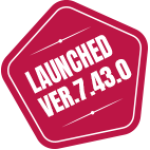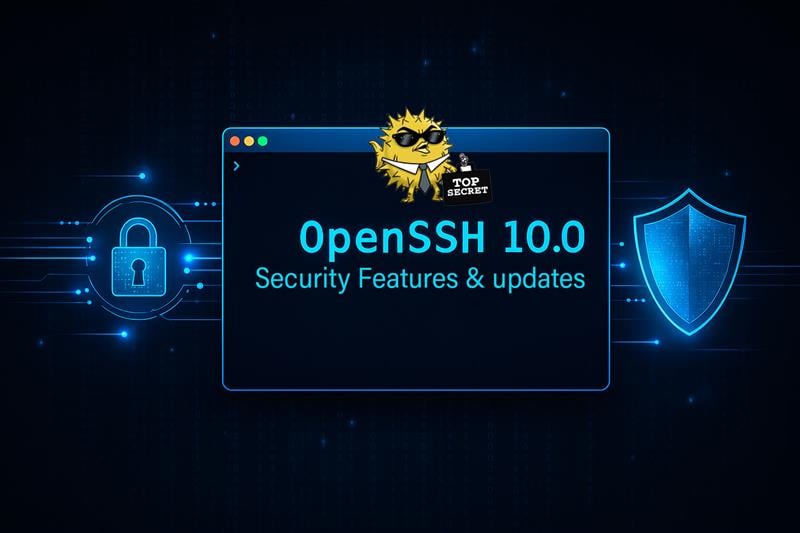OpenSSH 10.0: A Comprehensive Look at it’s Security-Driven Overhaul
OpenSSH 10.0 released on April 9, 2025, marks a turning point for one of the most critical tools in modern IT infrastructure. As the de facto standard for secure remote administration, file transfer, and tunneling, OpenSSH has continuously evolved to address new threats and cryptographic trends. Version 10.0, however, is more than a routine upgrade—it’s a major architectural and cryptographic shift designed to strengthen SSH security for the foreseeable future.
Let’s explore why OpenSSH 10.0 is such a milestone.
1. DSA Signature Algorithm Removal – End of an Era
For years, DSA (Digital Signature Algorithm) has been discouraged due to its 1024-bit key imit and inherent weaknesses. OpenSSH disabled DSA by default in 2015, but OpenSSH 10.0 officially removes DSA support entirely.
Why This Matters:
- Cryptographic Weakness: DSA’s 1024-bit limit makes it vulnerable to modern attacks, especially with increased computational power.
● Compliance Standards: Frameworks like NIST and PCI-DSS have already deprecated DSA, urging organizations to adopt stronger alternatives like Ed25519 and ECDSA.
Impact: Any remaining servers or scripts that rely on DSA keys will now fail. Migrating to something stronger, like Ed25519 or RSA is mandatory.
2. Post-Quantum Hybrid Key Exchange (mlkem768x25519-sha256)
OpenSSH 10.0 introduces a major cryptographic milestone with the mlkem768x25519-sha256 algorithm now set as the default for key agreement. This hybrid key exchange combines:
- ML-KEM (mlkem768): A NIST-standardized post-quantum key encapsulation mechanism, designed to withstand attacks even from quantum-capable adversaries.
- X25519: A widely adopted elliptic curve method, ensuring compatibility and high performance on today’s classical systems.
Why This Matters:
This marks a significant step toward quantum readiness in secure communication:
- Quantum-resistant security: The hybrid approach safeguards against both classical and future quantum attacks.
- Standards alignment: It aligns OpenSSH with NIST’s post-quantum cryptography standards, ensuring compliance with emerging best practices.
- Practical performance: By blending PQC with X25519, it avoids the performance drawbacks of purely post-quantum algorithms.
OpenSSH has supported PQC algorithms in earlier versions, but this is the first time a PQC hybrid is enabled by default, signaling a new era of practical, forward-compatible cryptographic security.
What is ML-KEM?
ML-KEM (Module-Lattice Key Encapsulation Mechanism) is one of the algorithms selected by NIST’s Post-Quantum Cryptography standardization project.
- Based on lattices: ML-KEM leverages structured lattice problems, which are believed to be resistant to attacks from quantum computers.
- Purpose: It’s used for securely exchanging encryption keys, even in a post-quantum world.
- Why it’s ideal for SSH: ML-KEM offers strong security guarantees without excessive computational overhead, making it suitable for high-performance secure communications like SSH.
By combining ML-KEM with X25519 in OpenSSH 10.0, users gain immediate quantum resilience without losing speed or compatibility.
3. New Authentication Architecture: sshd-auth
OpenSSH 10.0 has introduced a modular approach by separating the user authentication phase into a new binary called sshd-auth. This reduces attack surfaces and enhances memory efficiency by unloading authentication code post-authentication.
Benefits:
- Reduced Attack Surface: Pre-auth code (where most exploits occur) now runs in a separate, tightly restricted process.
- Memory Optimization: After login, memory-heavy authentication components can be dropped, reducing runtime footprint.
- Defense-in-Depth: This architectural shift minimizes the potential impact of pre-auth
vulnerabilities.
4. Disabling Finite-Field Diffie–Hellman (modp)
The finite-field DH algorithms (diffie-hellman-group14, group-exchange) are now disabled by default on the server side.
Why This Matters:
- Performance: ECC and PQC methods are faster and lighter than modp DH.
- Security: Traditional DH’s reliance on safe primes makes it more prone to
misconfiguration and slower key generation.
Admins who still need legacy DH can manually re-enable it in sshd_config, but modern deployments should prefer elliptic-curve and hybrid PQC methods.
5. Smarter Defaults, Configuration Enhancements & Vulnerability Fixes
OpenSSH 10.0 introduces many features and improvements:
- scp and sftp Multiplexing Fix: They now explicitly set ControlMaster no by default, preventing accidental reuse of multiplexed sessions.
- Enhanced Match Conditions: More granular rules allow targeted configurations for different hosts, users, and network contexts.
- Environment Variable Expansion: SetEnv and User directives now support expansions, making config files more dynamic.
- Cipher Preference: OpenSSH now prefers AES-GCM over AES-CTR for secure data encryption while keeping Chacha20/Poly1305 as the highest-priority cipher.
- Version Number Changes: OpenSSH now reports its version as “SSH-2.0-OpenSSH_10.0.” Software that naively matches versions using patterns like “OpenSSH_1*” may cause issues.
These refinements reduce configuration surprises and streamline large-scale SSH management.
This release also contains a minor security fix.
- Disable Forwarding Directive Fix: The DisableForwarding directive was not fully disabling X11 forwarding and agent forwarding as documented. It is now properly blocked when DisableForwarding is set.
6. Potential Drawbacks & Migration Concerns
While OpenSSH 10.0 strengthens security, it brings changes that may break legacy environments:
- Legacy Compatibility: DSA removal and modp DH disabling will cause older devices or embedded systems to fail unless updated.
- Automation Scripts: The version string SSH-2.0-OpenSSH_10.0 could confuse regex-based tools expecting OpenSSH_1* (common in security scanners or CI/CD checks).
- Packaging Adjustments: Distributions must now include sshd-auth, requiring updates to packaging pipelines.
Admins should audit their SSH ecosystem before upgrading, ensuring legacy clients, devices, and automation are compatible.
Why This Release Is a Big Deal?
OpenSSH 10.0 isn’t just about patching bugs or tweaking defaults—it represents a strategic
leap:
- Stronger cryptography by default (PQC-ready, ECC-centric).
- Architectural hardening with authentication process separation.
- Proactive removal of weak algorithms to enforce modern standards.
- Simpler, safer configuration for admins.
OpenSSH 10.0 is more than an upgrade—it’s a modernized, quantum-ready, security-first
rearchitecture of the most trusted remote access tool in the world. It future-proofs SSH for an
era where quantum computing and sophisticated cyber threats are real concerns. For
enterprises, sysadmins, and developers alike, now is the time to plan migration, tighten crypto hygiene, and embrace these forward-looking defaults.
Recommendations for Upgrading
If you plan to upgrade:
- Audit Key Algorithms: Replace any DSA keys with Ed25519 or RSA ≥ 3072 bits.
- Review Automation Scripts: Check for version parsing logic that may break with the new version string.
- Update SSH Clients/Servers Together: Ensure both ends support hybrid PQC KEX.
- Verify Packaging: If building from source or using custom images, ensure sshd-auth is included.







